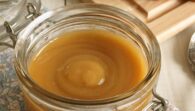Manuka honey is produced in New Zealand by bees that pollinate the native Manuka bush. For many years people have been aware of the anti-bacterial properties of honey and its benefits. But what many may not know is what makes Manuka so special.
Hydrogen peroxide is a component of honey. It gives most honey its antibiotic quality, but some types of honey, including Manuka honey, also have other components with antibacterial qualities.
Manuka honey, produced in New Zealand by bees that pollinate the Manuka bush, is one of the most unique and beneficial forms of honey in the world. There are many Manuka honey uses that range from healing sore throats and digestive illnesses to curing Staph infections and gingivitis.
Honey has been used since ancient times to treat multiple conditions. It wasn’t until the late 19th century that researchers discovered that honey has natural antibacterial qualities.
Advocates will swear by it and say it has been in traditional use for generations to treat wound infections and is claimed to boost energy, lower cholesterol, stave off diabetes and improve sleep.
The health effects of Manuka honey are due to the sugar degradation product methylglyoxal, or MGO for short. Watch the short video that explains the health benefits of Maunka honey.

Most if not all honey products have antibacterial activity, primarily due to hydrogen peroxide formed in a ‘slow-release manner by the glucose enzymes that are present in honey. However, unlike all other honeys, Manuka honey has a unique non-peroxide activity that is only present in Manuka.
[simple-payment id=”11749″]





